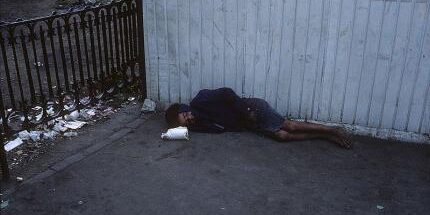Nowhere in the world has the tragic results of misguided government policy towards orphans been more evident than Romania.
History rightly condemns the legacy of communist dictator Nicolae Ceausescu. Tragically, what’s happened since his fall in 1989 has been checkered at best. There’ve been some real successes, such as the Bucharest Early Intervention Project. But just as often we’ve seen how government-enforced reforms often produce limited good – and sometimes much harm.
An article in World Affairs Journal from earlier this year chronicles the sad story in heartbreaking detail: “Orphaned by History: A Child Welfare Crisis in Romania.” I’d suggest it as must-read material for any orphan advocate.
One gripping facet of Romania’s story is how inter-country adoptions were effectively halted in the early 2000’s, purportedly as a means of protecting children and improving child welfare. The international adoption of children formerly held in Romania’s infamous institutions were common during the 1990’s. But — citing concerns over child trafficking — European progressives used Romania’s desire to join the European Union to force a shutdown in the early 2000s.
Today, however, less than 900 local adoptions happen each year nationwide – a number that proponents of the shutdown had claimed would skyrocket if international adoptions stopped pulling children out of the country. Government statistics also reveal that Romanians who do adopt have little interest in older children, or those with special needs or of Roma descent.
Looking closely today, one gains a vivid picture of what adoption shutdowns often mean for children in need of families. Each year, some two thousand young adults leave Romanian orphanages, ready prey for human trafficking, disease, and other evils.
One of relatively few orphans to escape this vortex and attend university spoke with the article’s author, but only on the condition of anonymity.
[The] university graduate, who described his “Lord of the Flies” surroundings growing up in one of Bucharest’s orphanages and is now a music teacher at a high school, asked that his name be withheld because even adult orphans are often discriminated against in Romania, as many feel that these survivors are “damaged goods.” He rarely tells people he is an orphan and worries that he might lose his job or his apartment if people found out his “secret.”
The article touches on many other issues as well, many with no apparent solution…save to still care and love and serve amidst profound complexity. These include:
- In principle, most experts believe that quality home-based foster care is far preferable to growing up in an institution. But foster care that lacks love is hardly an adequate replacement for orphanages that lack love. An observer of Romania’s foster system described, “It’s not for the love. It is a contract that can be broken at any time. It’s not good to have kids in foster care or foster homes for a long time. It’s a broken connection. Sometimes the foster family has an interest because it’s the only job to have here. It’s a job—a contract between them and social services.”
- In principle, most experts agree that re-unifying broken families is far better than long term foster or institutional care. But one sees case after case where rushing to reunify without attention to potential risks can bring tragedy. The article describes the experience of a social worker that visited the home of two elementary-aged brothers whom social services had reunified with their biological family. “Neighbors approached her, she says, and told her the children were not safe—that the parents were drunk most of the time. The boys had previously spent their entire lives in one foster home, with guardians who were devastated when told that the kids were being removed.”
- In principle, adoption is the preferable solution for children who’d otherwise never have a family. But the difficulty of nurturing a child who has been adopted from a low-nurture orphanage, especially at an older age, can be severe. Studies show that love and nurture can indeed bring immense good to these children. But the road will rarely be easy. And the future for those with the deepest wounds will often carry scars, even when much healing has occurred.
What does this tell us? If nothing else, this: all potential “solutions” for orphans have their pitfalls.
To be clear, that doesn’t mean they’re all equal. Not at all. We can and must be guided by the principles that common sense and social science clearly affirm: especially that children need love and nurture – ideally within a permanent family – to thrive.
But we also must be cautious in judging others who are serving as best they can. We can simultaneously urge what currently appears to be best practice, while also affirming that even the best-conceived plans often fall short.
Perhaps most of all, we must hold a healthy suspicion of those whose answer to profound human needs consists of squelching imperfect-but-still-good efforts to meet those needs. The current state of Romania’s orphans suggests that the European politicians and bureaucracies that closed Romanian adoptions a decade ago were much better at criticism than workable solutions. When such voices set government policies, orphans lose the most.


